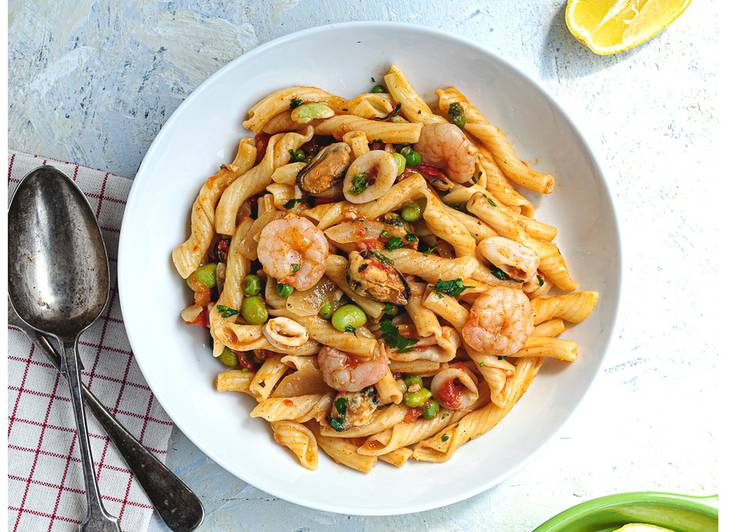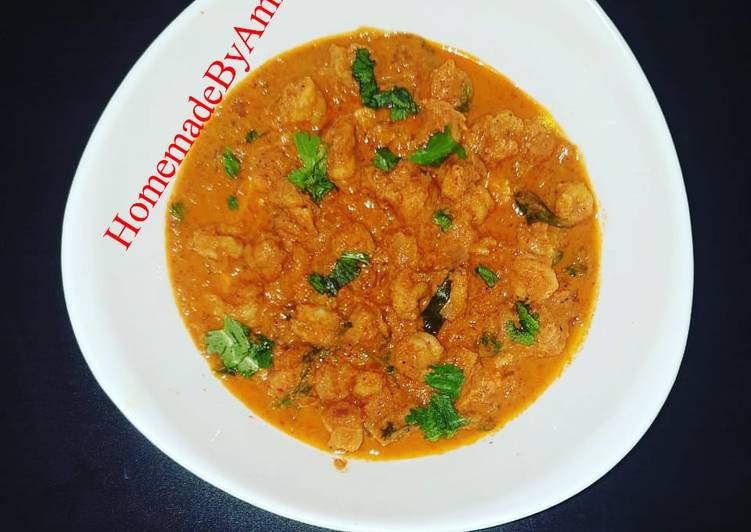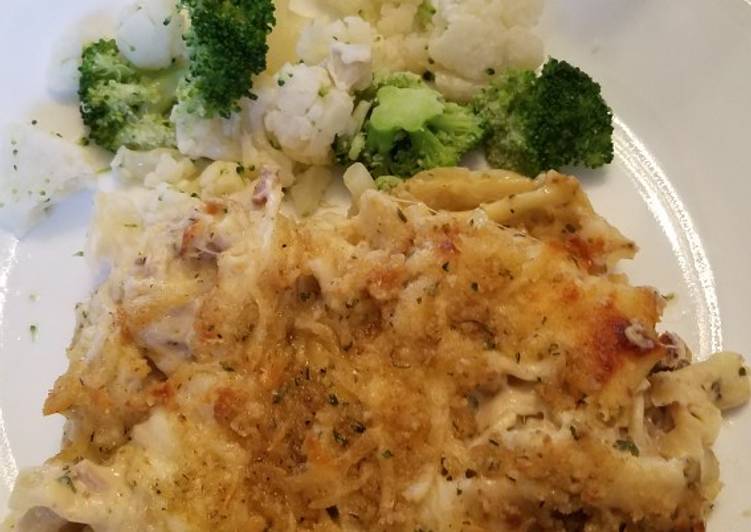
Hello everybody, it is me again, Dan, welcome to our recipe page. Today, I’m gonna show you how to prepare a distinctive dish, pasta marinera (seafood pasta). It is one of my favorites food recipes. This time, I will make it a bit tasty. This is gonna smell and look delicious.
Pasta marinera (seafood pasta) is one of the most favored of current trending meals in the world. It is simple, it’s quick, it tastes yummy. It’s appreciated by millions daily. They’re nice and they look wonderful. Pasta marinera (seafood pasta) is something which I’ve loved my entire life.
A classic, easy seafood pasta made using a seafood marinara mix: prawns / shrimp, calamari, fish and mussels tossed through a simple, tasty tomato sauce. Reviews for: Photos of Seafood Marinara Pasta. Marinara pasta is a classic traditional dish, executed to perfection by Italian Michelin-starred Chef Chicco Cerea.
To get started with this particular recipe, we must prepare a few components. You can have pasta marinera (seafood pasta) using 14 ingredients and 7 steps. Here is how you cook that.
The ingredients needed to make Pasta marinera (seafood pasta):
- Make ready 1 kg gemilli pasta or your preferred pasta
- Take 2 TBSP vegetable oil
- Make ready 1 small onion sliced
- Get 4 garlic cloves crushed
- Make ready 4 tomatoes medium chopped
- Make ready 1/2 can plum tomatoes
- Take 350 g frozen cooked seafood (squid, prawns and mussels)
- Take 1 pinch dried basil
- Take 1/2 TSP paprika
- Prepare 1/4 TSP cayenne pepper
- Make ready Zest of a small lemon
- Prepare Juice of the same lemon
- Get 2 TBSP fresh coriander chopped
- Make ready Salt
This marinara isn't just for pasta, although that's often its destination in my kitchen. The main takeaway here is that marinara is an easy, versatile sauce. With a few cans of tomatoes in your cupboard, you'll never need to buy jarred sauce again. Using the Marinara Mix from Get Fish, spoil your tastebuds with the hearty flavours of this seafood pasta, perfect with garlic bread and a glass of wine.
Instructions to make Pasta marinera (seafood pasta):
- Boil water enough to cook the pasta. Add salt before pouring the pasta in. I usually add 2 TSP of salt.
- In a big pan at medium heat, add the oil and slightly fry the garlic, add the onion and stir until it's soft, add the tomatoes and a pinch of salt, and the dried basil. Stir till well combined. Put the lid on and leave it for 3 minutes to cook.
- Now, cook the pasta until 2 minutes before it's ready, meanwhile, add the plum tomatoes to the sauce, stir till well mixed.
- To the sauce, add the seafood, the lemon zest, paprika, the cayenne pepper and another pinch of salt.
- Drain the pasta, leaving around a cup of water in. Pour it into the sauce and stir it.
- Add the lemon juice and the chopped coriander. Mix it all well. If you like, you can sprinkle some parmesan shavings on top when served. Try it and adjust the salt if necessary. Enjoy!
- P.s. You can always use fresh seafood but make sure you don't overcook it. If you use frozen and have time, leave it to defrost and add to the sauce in the last minute before adding the pasta, so it's not overcooked.
A delicious winter warmer like no other - our quick and tasty creamy seafood marinara recipe is sure to please! Esta receta de pasta marinera combina diferentes pescados y mariscos, dando como resultado un plato muy natural, sano y ligero. La pasta en general aporta hidratos de carbono de absorción lenta, por lo que liberan la energía de forma gradual. Seafood Pasta is the perfect way to impress your friends and family and its actually really easily! If this triggered your love for the combination of pasta and seafood you must try this Seafood Lasagna or this zesty Shrimp Boil Pasta.
So that’s going to wrap it up for this exceptional food pasta marinera (seafood pasta) recipe. Thank you very much for your time. I’m confident that you can make this at home. There is gonna be more interesting food in home recipes coming up. Don’t forget to save this page on your browser, and share it to your loved ones, colleague and friends. Thanks again for reading. Go on get cooking!


